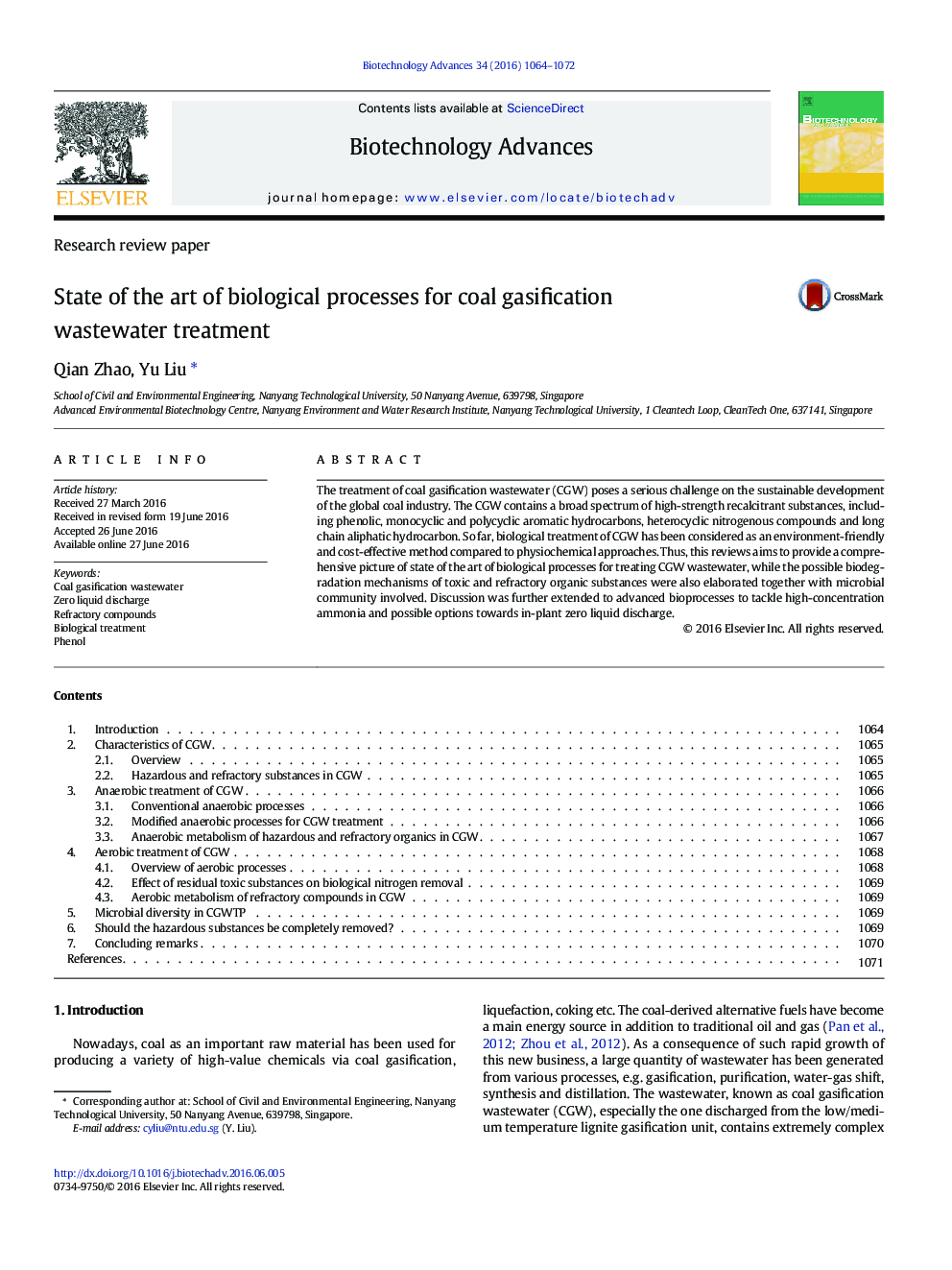| Article ID | Journal | Published Year | Pages | File Type |
|---|---|---|---|---|
| 6451245 | Biotechnology Advances | 2016 | 9 Pages |
â¢A broad spectrum of refractory organics in CGW could be biologically removed.â¢The refractory organics could be mineralized via different pathways by strains.â¢Whether refractory organics should be completely removed is open to discussion.
The treatment of coal gasification wastewater (CGW) poses a serious challenge on the sustainable development of the global coal industry. The CGW contains a broad spectrum of high-strength recalcitrant substances, including phenolic, monocyclic and polycyclic aromatic hydrocarbons, heterocyclic nitrogenous compounds and long chain aliphatic hydrocarbon. So far, biological treatment of CGW has been considered as an environment-friendly and cost-effective method compared to physiochemical approaches. Thus, this reviews aims to provide a comprehensive picture of state of the art of biological processes for treating CGW wastewater, while the possible biodegradation mechanisms of toxic and refractory organic substances were also elaborated together with microbial community involved. Discussion was further extended to advanced bioprocesses to tackle high-concentration ammonia and possible options towards in-plant zero liquid discharge.
